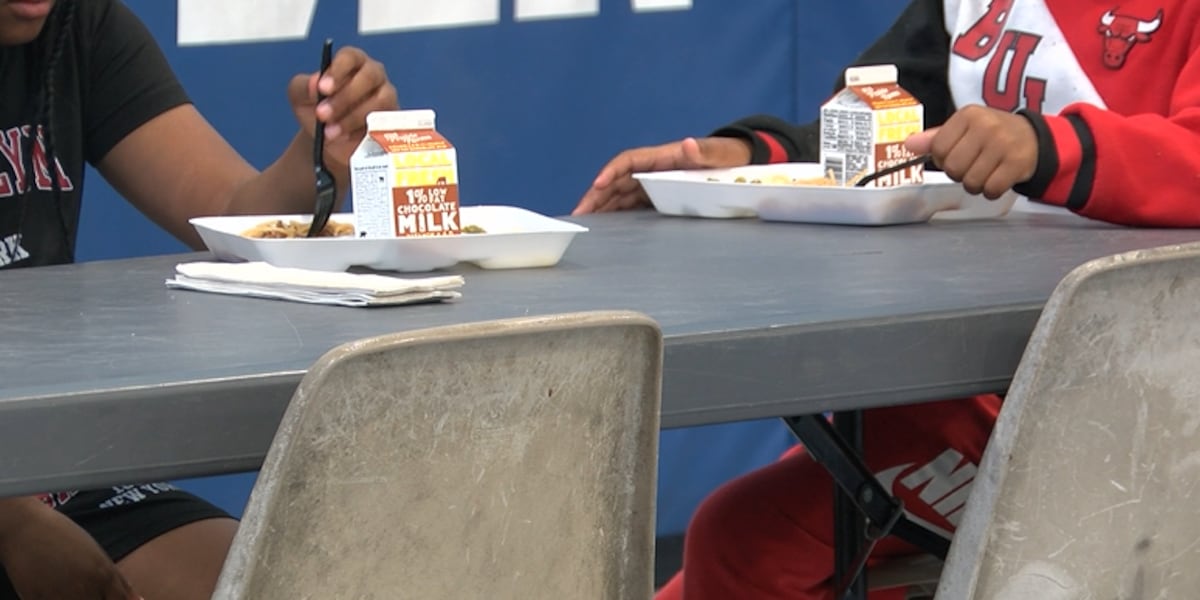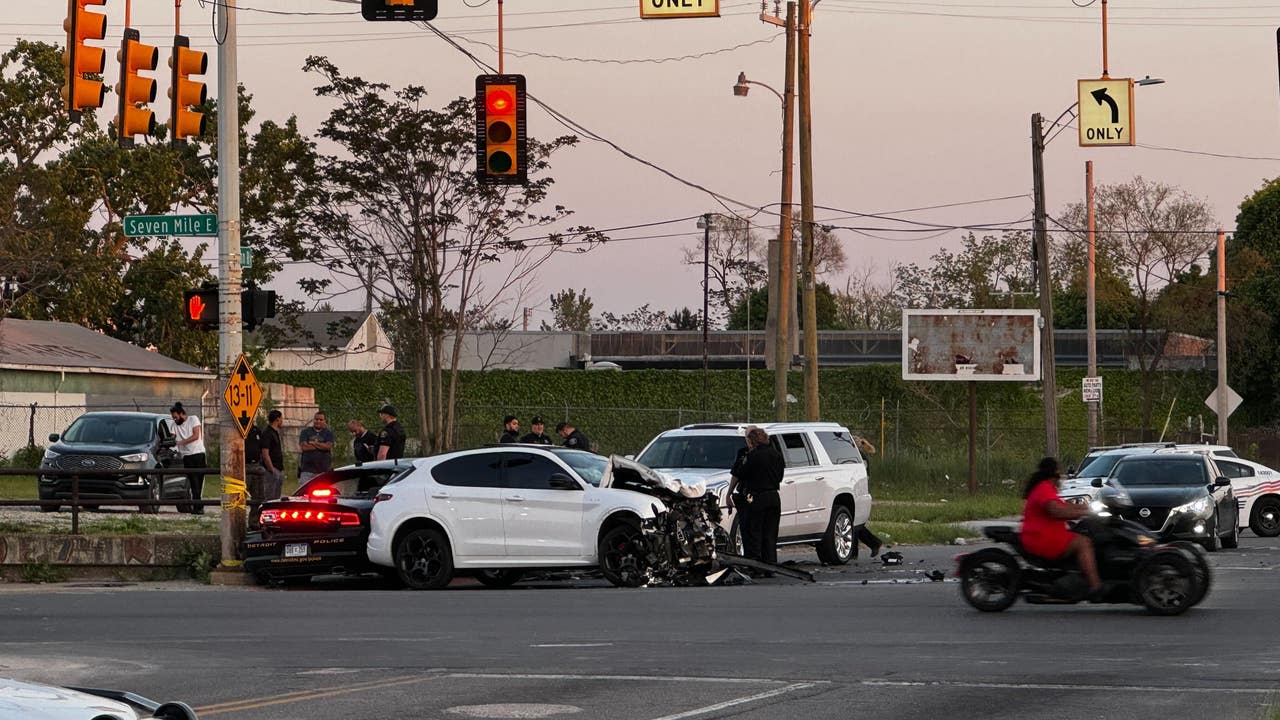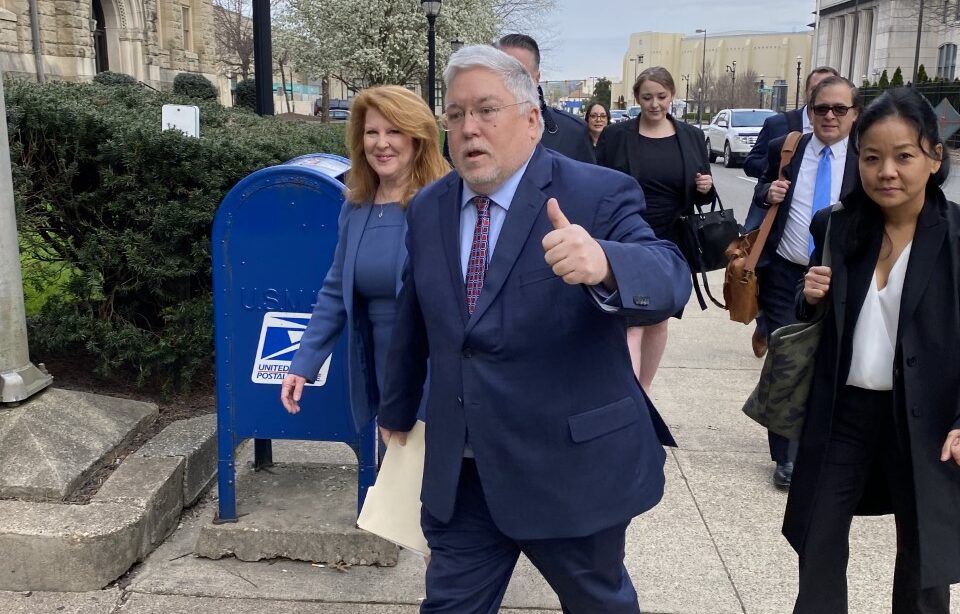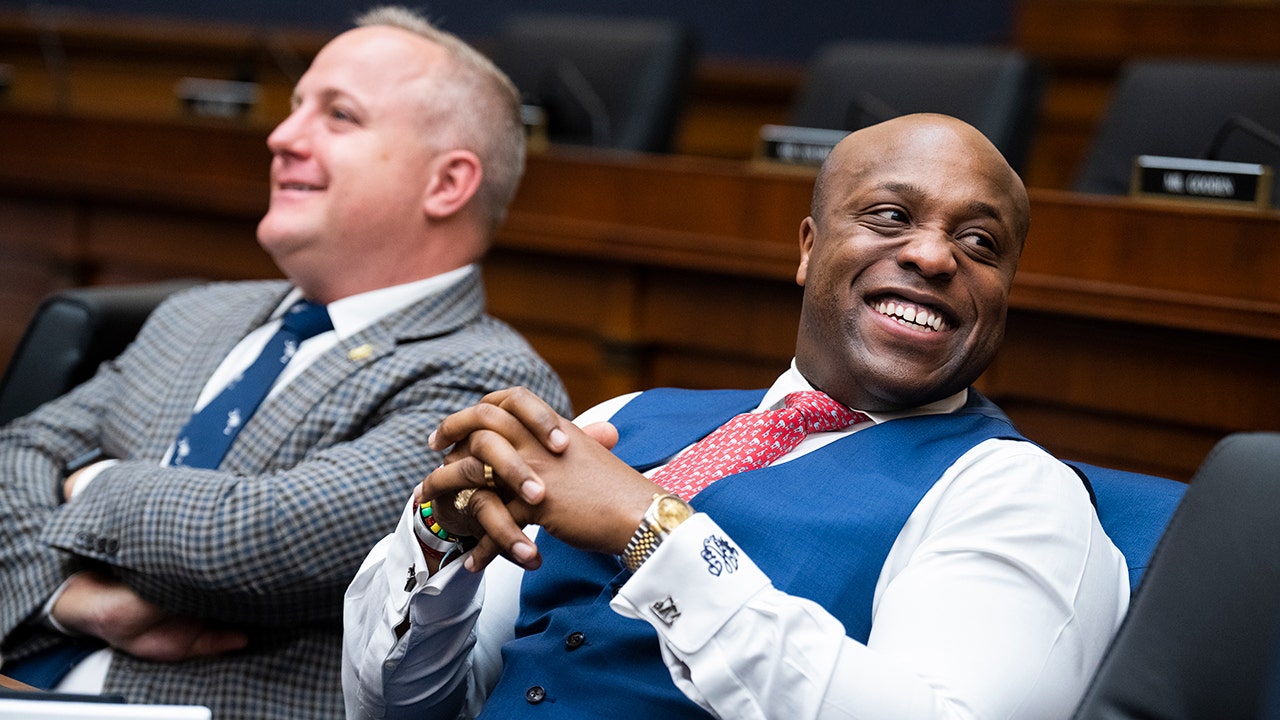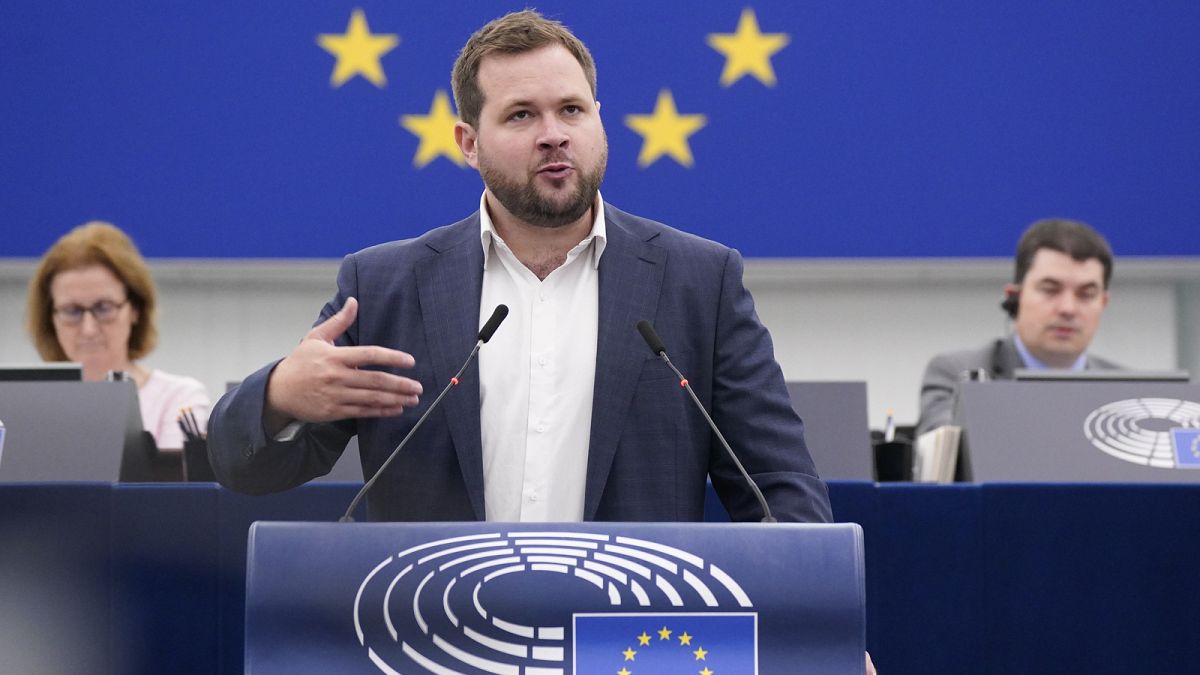Kentucky
Voters Head to Polls Tuesday for Big Races in Virginia, Kentucky

Voters in several states will give the country an early read on the electorate’s mood heading into the 2024 presidential campaign, with a Democratic incumbent in Kentucky testing the party’s strength in Trump Country and abortion front and center in Virginia’s legislative races.
Tuesday’s gubernatorial race in Kentucky is expected to be competitive, while the Mississippi governor’s contest isn’t seen as close. Virginia and New Jersey have no statewide races, but all of the seats in each state’s legislatures are on the ballot. Control of Virginia’s legislature is on the line, with the results offering hints about the strength of both parties’ messages heading into 2024.
Copyright ©2023 Dow Jones & Company, Inc. All Rights Reserved. 87990cbe856818d5eddac44c7b1cdeb8

Kentucky
Kentucky Antisemitism Task Force discusses college campus protests in latest meeting

LEXINGTON, Ky. (WKYT) – As pro-Palestinian protests pop up across college campuses, including right here at the University of Kentucky, many Jewish students are trying to have their voices heard.
That’s why the Kentucky Antisemitism Task Force met on UK’s campus on Wednesday.
They are confronting reports of antisemitism within universities across the state.
The Anti-Defamation League said there have been six reports of antisemitism across Kentucky’s college campuses.
The league said four instances have been reported at the University of Louisville and at at least one case has been reported at UK.
“I think sometimes we’re quick to jump to wanting to support students, but we don’t ask them what support looks like or how we should be supportive,” said UK’s Dean of Students, Trisha Clement.
Clement said some of the ways UK is supporting Jewish students is by providing listening sessions and implementing a Religious and Spiritual Life Office for students to turn to.
“We have had conversations with both our Jewish students and our Muslim students, doing listening sessions with them, providing alternative programming if they needed it, and hearing from them what their experience is like both in and out of the classroom,” she said.
It was also announced that a subcommittee on antisemitism education is being developed.
“Our focus is going to be on antisemitism across the board, K-12, and higher education. People on both sides are going to disagree about policy issues, disagree about what’s going on in the middle east, but we can disagree without being disagreeable,” said task force chair Jonathan Miller.
Miller added those subcommittee members will be selected soon.
Copyright 2024 WKYT. All rights reserved.
Kentucky
Fewer doctors-in-training are applying to Kentucky programs, according to a new study

The study found that U.S. medical students were less likely to put in an application in states with abortion bans in place, including in Kentucky. The Commonwealth’s near-total abortion ban only allows exceptions if the mother is in imminent risk of death or permanent injury.
Dr. Atul Grover is the executive director for the Association of American Medical Schools Research and Action Institute. Through his research, Grover found that 15% fewer U.S. medical students applied to residency programs in Kentucky during the last academic year compared to the 2022-23 school year — that’s 1,050 fewer applicants across specialties.
In programs for obstetricians and gynecologists, there was an even sharper 23% decline, Grover said.
“We do see these trends across specialties though,” Grover said. “People get a little jittery around the idea that the state government is going to come in and tell you what is not appropriate care for a patient when you know otherwise.”
Grover noted that medical students overall applied to fewer schools, meaning students got pickier in where they applied. That accounts for some of the decrease in applications across states, but the remaining deficit, he said, is cause for concern — particularly to states with abortion bans.
“Health care shortages, across specialties, across a lot of states, are already being felt by patients,” Grover said. “If I think about Kentucky, Alabama, Mississippi, these are states that already have trouble attracting and recruiting, retaining physicians.”
Kentucky hospitals are already dealing with an “acute shortage” of health care workers, with nearly 13,000 job vacancies in hospitals at the end of 2022, according to the The Kentucky Hospital Association.
Grover said medical residency application numbers are one of the fastest ways to measure where doctors are moving or interested in moving. Other metrics are harder and take longer to track. Residents, the researcher said, have a tendency to stay in the state where they train.
Grover said lawmakers should understand the full implications of abortion bans, especially in a state that already suffers from several physician shortages, including in women and reproductive health fields. According to data from the U.S. Health Resources and Services Administration, more than half of Kentucky’s 120 counties don’t have a single OB/GYN specialist — whether an MD or an OD — in 2022-23.
Louisville Pediatrician Dr. Michelle Elisburg said she suspected the abortion ban would keep young doctors from training in or choosing to practice in Kentucky. Elisburg was part of a group of doctors called Kentucky Physicians for Reproductive Freedom who urged Frankfort lawmakers to end the state’s abortion bans earlier this year.
Elisburg said the bans keep students from receiving all the training they need to provide abortion care or require them travel out of state to get it.
“If there’s such a ban, that restricts the kind of training that people are able to do,” Elisburg said. “They’re not going to want to come to a state where they can’t be completely trained in all the techniques in their field.”
She also noted that many doctors entering residency are in their mid to late 20s, and may be considering having children themselves. The bans may keep those women or their partners from considering moving to the state either.
“You wouldn’t come if you’re a young woman and know that if something happens to you, you might die because they aren’t gonna let you get the health care you need,” Elisburg said. “That’s where you are going to lose the doctors.”
Blair Wooten, who attended University of Louisville medical school, said the state’s abortion ban was one of the reasons she decided to leave the state. She ended up going to a program in Ohio for the last year.
“[Abortion medical training] is paramount to me,” Wooten said. “It’s something I want to be in my practice.”
Wooten is now in the process of moving to Indiana for a different residency program, a state which has its own abortion ban. She said she’s apprehensive about returning to a place where she won’t be able to give or potentially receive medical care that she believes to be appropriate.
But her program gives students the opportunity to receive abortion training in a Detroit-based program, which eased some of her fears — and clinics in Ohio are just a few hours drive away.
“Even though I’ll be in a hostile place, I’ll be near places that have more open access to abortion so that people with fewer resources can still access that,” Wooten said.
Wooten said she’s not sure if she’d consider setting up a practice in a state without abortion access. She said the inability to immediately provide the care she believes is necessary would be painful, but she also wants to provide services in health care deserts.
“Family planning is something I want to be a big part of my practice, so I usually say, ‘No,’” Wooten said. “But I’m also keenly aware that people need resources in every place, especially places that are maybe a little more hostile. And they need providers who care and can help them even with limited resources.”
State government and politics reporting is supported in part by the Corporation for Public Broadcasting.
Kentucky
Kentucky’s primary election less than a week away
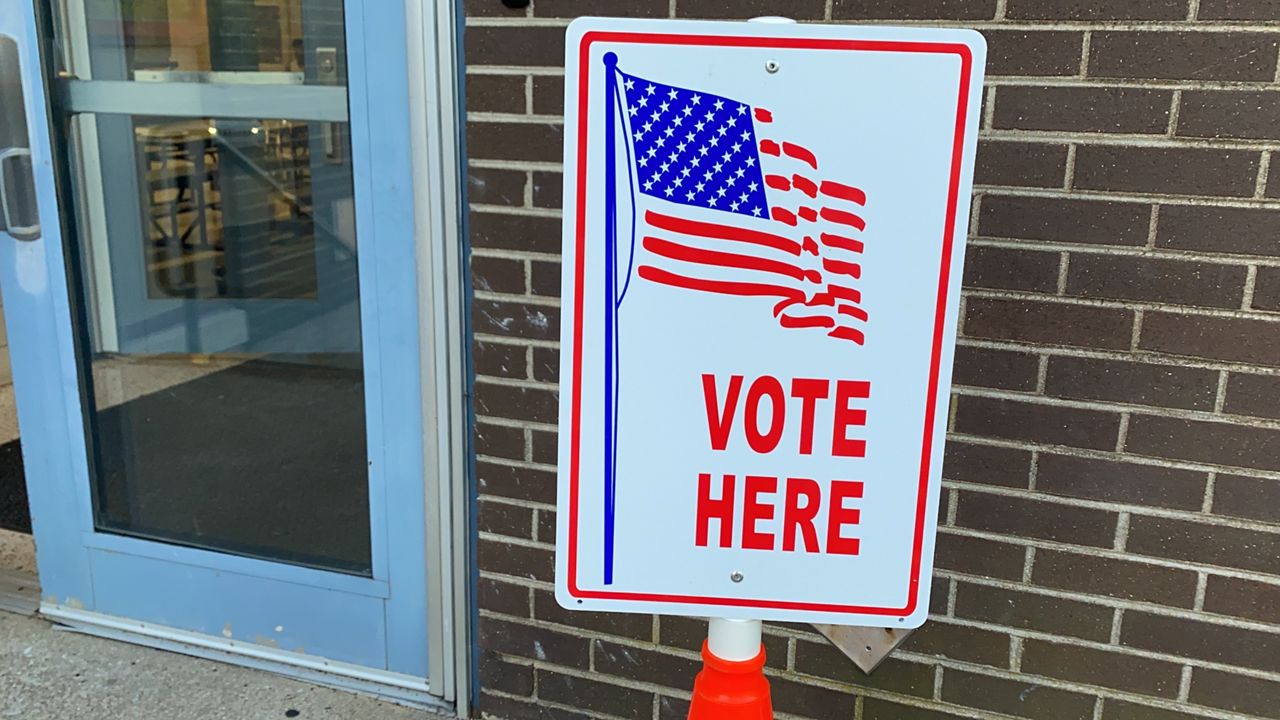
LOUISVILLE, Ky. — With less than a week until Kentucky’s primary election, civic groups like the Louisville League of Women Voters are encouraging everyone to get out and vote.
Ahead of this year’s primary, the league has hosted several candidate forums in Louisville. They covered both Metro Council and state office races.
It’s one way the nonpartisan organization has worked to inform voters about the upcoming election.
Dee Pregliasco is the current president of the Louisville League of Women Voters. (Spectrum News 1/Mason Brighton)
“We don’t support parties,” said Dee Pregliasco, president of the Louisville League of Women Voters. “We don’t support candidates. Just trying to sort of raise people’s awareness of voting.”
Recently volunteers also went door to door in parts of the county to inform people of the primary.
Pregliasco highlighted the importance of being an informed voter and said just one vote can still make a difference.
“One of our former governors won his primary by 87 votes; that’s not a lot of votes,” Pregliasco said. “So it’s really, really important.”
Secretary of State Michael Adams, R-Ky., said he predicted low voter turnout, around 10-15%. Still, he encouraged everyone to get out and do their civic duty.
“You have people who say, ‘Well, I don’t want to go, and I don’t have time to do all that,’” Pregliasco said. “But if you ask them what they care about, they sometimes can give you a long list, and all of those things are affected by who we put into office.”
This year, the entire state House of Representatives and half of the state Senate are up for reelection. Several races only have candidates from one party, meaning whoever wins May 21 will punch their ticket to Frankfort.
-

 Politics1 week ago
Politics1 week agoHouse Dems seeking re-election seemingly reverse course, call on Biden to 'bring order to the southern border'
-

 World1 week ago
World1 week agoStand-in Jose Raul Mulino wins Panama presidential race
-

 News1 week ago
News1 week agoCompass Direct LLC’s 2024 Registration in North Carolina
-
News1 week ago
UCLA to resume in-person classes after Gaza protest crackdown
-

 World1 week ago
World1 week agoTech compliance reports, Newsletter
-

 News1 week ago
News1 week agoColumbia University cancels its main commencement ceremony after weeks of turmoil
-

 News1 week ago
News1 week agoMan, 75, confesses to killing wife in hospital because he couldn’t afford her care, court documents say
-

 World1 week ago
World1 week agoPentagon chief confirms US pause on weapons shipment to Israel
